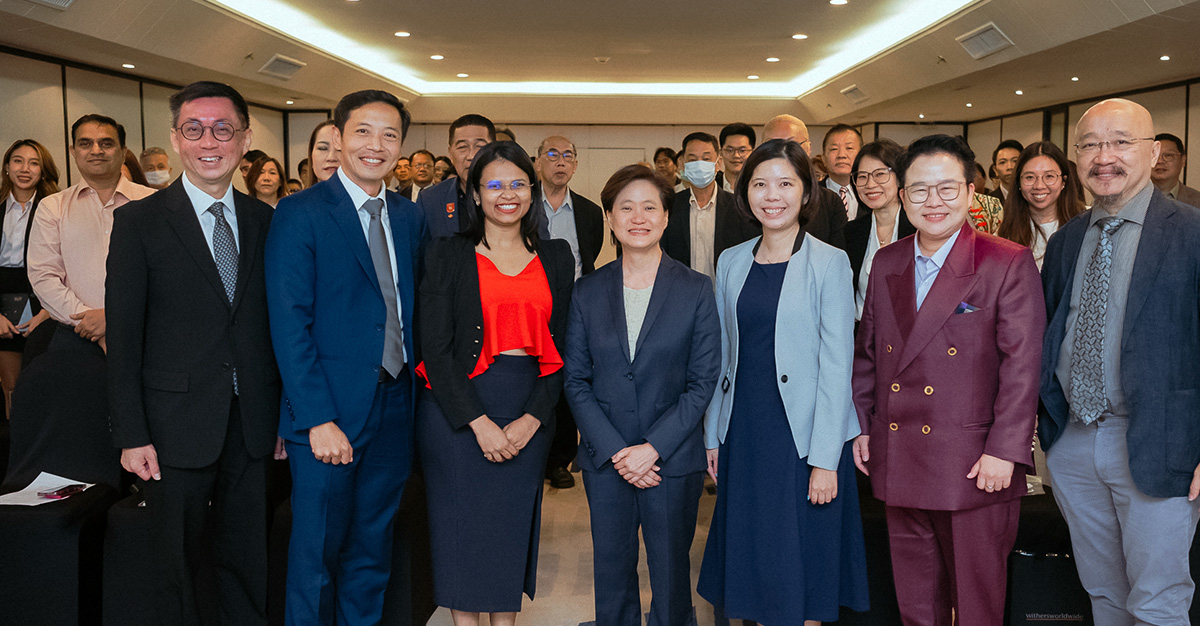
By Saranee Gunathilaka, Co-Founder & CEO, UDecide Mediation – Sri Lanka
Today, I had the privilege of representing UDecide Mediation – Sri Lanka, at a key event in Bangkok, organised by Sage Mediation, where we discussed the future of mediation and international dispute resolution.
Thailand is positioning itself as a hub for Alternative Dispute Resolution (ADR) in Asia, and this trip provided valuable insights into how the country is enhancing its mediation and arbitration capabilities to meet international standards.
From Smiles to Solutions
The panel discussion focused on Thailand’s rich culture of mediation and international developments in mediation in light of the UN Convention on Mediation. Known as the “Land of Smiles,” Thailand has a long-standing tradition of peaceful conflict resolution, reinforced by its mediation related legislation including the Disputes Mediation Act of 2019, with mediation integrated into the judicial system, creating a robust domestic framework to mediate local disputes.
Thailand’s International ADR Potential
Thailand’s ambitions to become a finance, digital, and investment hub in Asia, through its novel initiatives such as the Ignite Finance initiative, launched in 2024, bolster its potential as an international ADR center. As Thailand’s economy rapidly grows and attracts significant foreign investment, the need for effective and efficient dispute resolution mechanisms becomes increasingly critical.
Establishing strong ADR mechanisms—particularly through the combined use of mediation and arbitration (Arb-Med-Arb)—is essential. This hybrid model allows parties to mediate disputes even after arbitration has commenced, promoting early settlement while ensuring enforceability.
Mediation, which offers a faster and more cost-efficient alternative to litigation, is ideal for resolving commercial disputes. Ratifying the Singapore Convention on Mediation would further enhance Thailand’s role as a leader in international mediation, giving businesses confidence that mediated settlements will be enforceable globally.
As international trade expands, the demand for skilled mediators and arbitrators is rising. By focusing on global training and certification for mediation professionals, Thailand can attract high-profile international cases, enhancing its ADR infrastructure and reputation.
Strategic Partnerships
During the trip, Sage Mediation signed a Memorandum of Understanding (MoU) with the Thailand Arbitration Center (THAC). This collaboration aims to promote international mediation and arbitration in Thailand and Singapore. We also engaged with leaders from the Thai Arbitration Institute attached to the Office of the Judiciary to discuss how international training and accreditation for mediation professionals as well as international collaborations between service providers, can prepare Thailand to become an international ADR hub.
In Conclusion
Thailand is on a promising path to becoming a leader in international ADR, supported by its strong mediation culture and its ambitions to become a global financial and investment hub. As the economy grows, Thailand’s ability to provide for international level, dispute resolution mechanisms, which are efficient and effective will be crucial for attracting global investments. Ratifying the Singapore Convention on Mediation is vital for Thailand to enhance its credibility in international dispute resolution. This step would ensure that mediated settlements are enforceable across borders, further boosting investor confidence.
For UDecide Mediation Sri Lanka, this trip offered valuable insights into Thailand’s evolving role in the international dispute resolution landscape and the continuing efforts of Sage Mediation Singapore in supporting neighbour countries to grow their potential in international dispute resolution. We look forward to collaborating further with Sage Mediation Singapore, to promote higher mediation standards across Asia.
Saranee is also an International Faculty Leader at Sage Mediation Institute. She can be reached via LinkedIn here.
…

